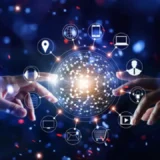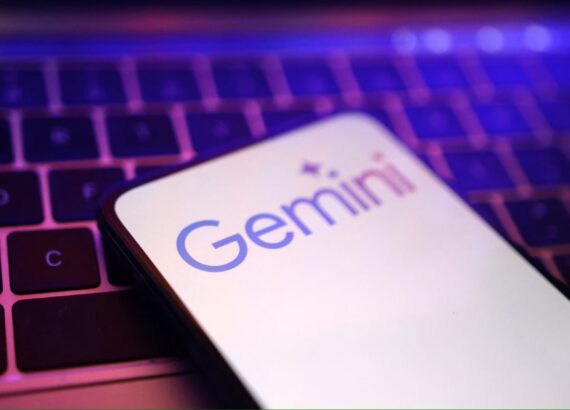Mind-Blowing Breakthrough: Artificial Intelligence Takes Over the World!
Artificial Intelligence (AI) has emerged as one of the most transformative technologies in recent times, revolutionizing various aspects of our lives. With its ability to mimic human intelligence and perform complex tasks, AI is rapidly reshaping industries, from finance and healthcare to manufacturing and transportation. This article delves into the mind-blowing breakthroughs of AI and explores its impact on different sectors.
Additionally, we will discuss the ethical concerns and challenges associated with AI domination, its integration into everyday life, the future of work in an AI-driven world, and its profound implications in healthcare and warfare. While AI offers immense possibilities, we must also address the potential risks and strive for responsible development and deployment. Join us on this captivating journey as we unravel the power of AI and its global takeover.
1. Defining Artificial Intelligence (AI)
Artificial Intelligence, or AI for short, is not just the stuff of science fiction movies anymore. In other words, AI allows machines to think, learn, and problem-solve like humans do. It’s like giving your toaster a PhD in philosophy.
Historical Development of AI
The concept of AI has been around for decades, with early pioneers dreaming of creating machines that could mimic human intelligence. However, progress was slower than a sloth on a lazy Sunday. It wasn’t until recent years that advances in computing power and algorithms finally gave AI the boost it needed to take off.
Current State of AI Technology
AI is no longer just a futuristic fantasy; it’s already a reality with a capital “R”. From self-driving cars to voice-activated assistants, AI is infiltrating our lives faster than our addiction to social media. The possibilities are endless: analyzing big data, improving healthcare, and even predicting the next big trend in fashion.
2. The Transformative Impact of AI on Various Industries
AI in Finance and Banking
Say goodbye to the days of dealing with bored bank tellers and long queues. AI is revolutionizing the finance industry, making transactions faster, more efficient, and even a little bit smarter. From chatbots that answer your burning financial questions to algorithms that detect fraudulent activity, AI is taking on the role of your financial advisor.
AI in Manufacturing and Robotics
Robots, those metal friends with arms and shiny heads, have long been the stuff of sci-fi fantasies. But with AI, they are becoming a reality in manufacturing and robotics. These smart machines can analyze complex data, make decisions on the fly, and perform repetitive tasks with precision. They might just beat us humans at our own game… at least in the factory.
AI in Transportation and Logistics
Remember when you had to rely on human drivers to navigate you safely to your destination? Well, AI-powered self-driving cars are here to change the game. These smart vehicles can navigate traffic, detect obstacles, and even parallel park better than most humans. Goodbye road rage, hello AI chauffeur!
AI in Retail and Customer Service
AI is not only transforming your shopping experience but also the way businesses interact with customers. From personalized recommendations based on your browsing history to chatbots that provide instant customer support, AI is making shopping easier, faster, and maybe a little bit creepier. It’s like having a retail assistant that knows you better than you know yourself.
3. Ethical Concerns and Challenges Surrounding AI
Privacy and Data Security
As AI advances, so do concerns about privacy and data security. From the fear of AI monitoring our every move to the potential misuse of personal information, we need to ensure that AI respects our boundaries and keeps our secrets safe. Let’s keep the AI gossip to a minimum, shall we?
Bias and Discrimination in AI Algorithms
AI may be smart, but it’s not immune to biases and discrimination. Since AI algorithms are trained on data that reflects human biases, it’s no surprise that they sometimes perpetuate those biases in their decisions. We need to make sure AI is fair and doesn’t discriminate against anyone based on their race, gender, or love for pineapple on pizza.
Autonomous Decision-Making and Accountability
Who’s to blame when an AI-powered machine messes up? With autonomous decision-making, it’s not as clear-cut as blaming your sibling for eating the last slice of pizza. We need to establish guidelines and accountability frameworks to ensure that AI takes responsibility for its actions. Maybe a time-out in the digital corner will do the trick.
Job Displacement and Socioeconomic Inequality
AI may be a game-changer, but it also raises concerns about job displacement and socioeconomic inequality. As AI takes over tasks previously performed by humans, it could lead to job losses and widened economic gaps. We need to find ways to adapt and ensure that AI benefits everyone, not just the tech-savvy few.
4. AI in Everyday Life: From Smart Homes to Personal Assistants
AI-Powered Devices and Appliances
Imagine a world where your toaster knows exactly how golden you like your toast and your fridge can tell you when you’re running low on milk. Thanks to AI, smart devices and appliances are becoming a reality. It’s like living in a home straight out of “The Jetsons,” minus the flying cars and quirky robot maid.
Virtual Assistants and Voice-activated Technology
Hey Siri, Alexa, and Google Assistant, we need to talk. Virtual assistants and voice-activated technology have become an integral part of our lives. They can answer our questions, play our favourite tunes, and even order pizza with just a command. It’s like having a personal assistant who’s always ready to cater to your every whim.
AI in Home Security and Energy Management
Gone are the days of manually setting your thermostat or worrying about burglars sneaking into your home. AI is making homes smarter and safer. From security systems that can detect suspicious activity to energy management systems that optimize your power usage, AI is like your own personal superhero protecting your home and saving you money.
There you have it, folks! A mind-blowing journey through the rise of AI, its transformative impact on various industries, the ethical concerns it raises, and its integration into everyday life. Strap on your AI-powered seatbelt because the future is here, and it’s smarter than ever before. Now, if you’ll excuse me, I need to go teach my toaster some new tricks.

5. The Future of Work: AI’s Disruption of Employment Patterns
Job Automation and AI’s Impact on the Labor Market
Artificial Intelligence has come a long way in recent years, and its potential impact on the job market is undeniable. With the ability to automate repetitive tasks and streamline processes, AI has the potential to significantly disrupt employment patterns. Tasks that were once performed by humans may now be replaced by intelligent machines, leaving many workers concerned about the future of their roles. But hey, on the bright side, at least we’ll have more time to perfect our dance moves!
Upskilling and Reskilling in the AI Era
To stay ahead in the job market, individuals must adapt and acquire new skills in the era of AI. Upskilling and reskilling become more important than ever, as workers need to find ways to complement the capabilities of AI rather than compete with it. Employers and individuals will need to invest in continuous learning and development to keep up with the changing landscape. It’s like trying to master a new video game level – challenging, but doable!
Potential New Job Opportunities Created by AI
While AI may be taking over some jobs, it’s also creating new opportunities. As technology advances, new roles and industries are emerging, requiring skills that go hand in hand with AI. From AI trainers and explainability analysts to data privacy managers and algorithm bias auditors, the future job market will be full of exciting and innovative roles. So don’t stress too much about the robot uprising just make sure to incorporate a little AI into your career plan!
6. Artificial intelligence in Medical services: Reforming Determination and Therapy
AI Applications in Medical Imaging and Diagnostics
AI is no longer just a sci-fi concept; it’s revolutionizing the healthcare industry. One area where AI is making a massive impact is in medical imaging and diagnostics. With its ability to analyze vast amounts of data, AI can assist doctors in making more accurate and timely diagnoses, improving patient outcomes. It’s like having a brilliant medical assistant who never gets tired or needs coffee!
AI-Assisted Drug Discovery and Development
Finding new drugs can be a tedious and time-consuming process, but AI is changing the game. By combining machine learning algorithms with vast amounts of biological data, AI can help researchers identify potential drug candidates with higher accuracy and efficiency. This means faster development of life-saving medications and a brighter future for healthcare. Now that’s what I call a true superhero sidekick!
Telemedicine and Remote Patient Monitoring
With the rise of telemedicine, AI is enabling remote patient monitoring and personalized care. From wearable devices that track vital signs to chatbots that provide healthcare advice, AI is making healthcare more accessible and convenient. Patients can receive timely care without leaving their homes, and doctors can monitor their progress remotely. It’s like having a doctor on call 24/7, minus the awkward waiting room magazines!
7. AI in Warfare: Implications and Dangers of Autonomous Weapons
AI and Autonomous Weapon Systems
While AI has the potential to revolutionize many industries, it’s also raising concerns in the field of warfare. The development of autonomous weapon systems, enabled by AI, poses ethical questions and potential dangers. Can we trust machines to make life-or-death decisions? It’s like putting your fate in the hands of a calculator – a bit risky, don’t you think?
Ethical and Legal Considerations of AI in Warfare
As AI technology becomes more advanced, it’s crucial to address the ethical and legal considerations surrounding its use in warfare. Questions of accountability, proportionality, and the potential for unintended consequences need to be thoroughly examined. It’s important to ensure that AI is used responsibly and by international laws and regulations. Let’s avoid the whole “AI taking over the world” scenario, shall we?
International Governance and Regulations
To prevent the misuse of AI in warfare, international cooperation is vital. Establishing clear governance structures and regulations can help ensure that AI is used ethically and safely. It’s like having a referee in a boxing match, making sure everyone follows the rules and plays fair. Let’s keep AI in check, so it remains a force for good!
8. Embracing the Power of AI while Addressing its Potential Risks
Benefits and Opportunities of AI Advancements
Artificial Intelligence has the potential to transform our lives in countless ways, from improving healthcare to revolutionizing industries. Its ability to process vast amounts of data and make fast, accurate decisions is truly mind-blowing. And hey, who can resist the convenience of a virtual assistant that understands your commands?
Responsible AI Development and Deployment
While we’re excited about the possibilities AI brings, it’s essential to approach its development and deployment responsibly. We need to consider the potential risks and unintended consequences and actively work to mitigate them. Responsible and ethical AI practices are key to ensuring that AI benefits society as a whole. Let’s build a future where AI is more like WALL-E than Skynet!
Now, go forth and embrace the power of AI while keeping an eye on the toaster – just in case it starts plotting world domination. Remember, a little wit and personality can make even the most mind-blowing breakthroughs relatable and easy to understand. Keep it cool, humans!
Conclusion
In conclusion, the rise of Artificial Intelligence (AI) has unleashed a wave of innovation and disruption across various industries. From enhancing efficiency and accuracy to enabling breakthroughs in healthcare and shaping the future of work, AI has proven its potential to transform our world. However, as we embrace the power of AI, it is crucial to address the ethical concerns and challenges that come with its domination.
By prioritizing responsible development, ensuring transparency, and fostering inclusive approaches, we can harness the full benefits of AI while mitigating its risks. As AI continues to advance, it is our collective responsibility to shape its trajectory in a way that serves humanity, ensuring a future where AI coexists harmoniously with our values and aspirations.
FAQ
1. What is Artificial Intelligence (AI) and how does it work?
It involves simulating human cognitive abilities, such as problem-solving, learning, and decision-making, using algorithms and data processing. AI systems often leverage machine learning, deep learning, and neural networks to analyze vast amounts of data and make predictions or take actions.
2. What are some ethical concerns surrounding AI domination?
While AI offers tremendous potential, there are ethical concerns that need to be addressed. These include issues related to privacy and data security, as AI systems often require access to large amounts of personal data. Bias and discrimination in AI algorithms are also a concern, as machine learning models can inadvertently perpetuate existing biases present in the data they are trained on. Additionally, the impact of AI on employment and socio-economic inequality raises questions about job displacement and the need for upskilling and reskilling in the workforce.
3. How does AI impact everyday life?
From smart homes equipped with AI-powered devices and appliances to virtual assistants like Siri and Alexa, AI is making our lives more convenient and efficient. It plays a role in home security systems, energy management, personalized entertainment recommendations, and voice-activated technology. AI also impacts sectors such as healthcare, where it aids in diagnostics, drug discovery, and telemedicine.
4. What is the future of work in an AI-driven world?
AI has the potential to disrupt employment patterns, automating certain jobs and creating new ones. While some jobs may be displaced by AI, there will also be a demand for individuals skilled in working alongside AI systems or managing and developing AI technologies. The future of work will likely require a combination of technical skills, creativity, and adaptability. Upskilling and reskilling programs will play a significant role in preparing the workforce for the AI-driven job market of the future.
Thank you for reading 🙂
If you want to build your website at an affordable price contact: www.nextr.in
Read this: Top 8 Apps Every Entrepreneur Needs


















